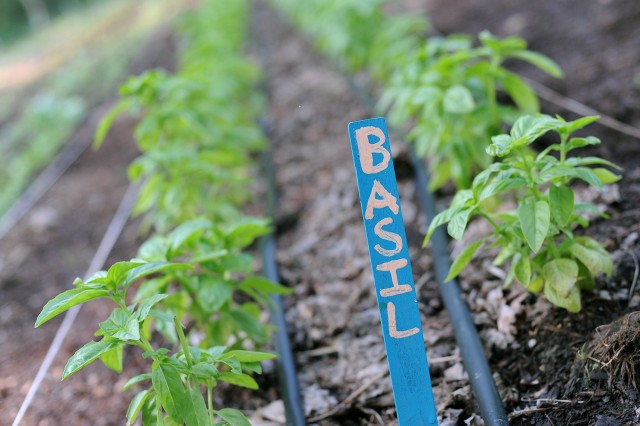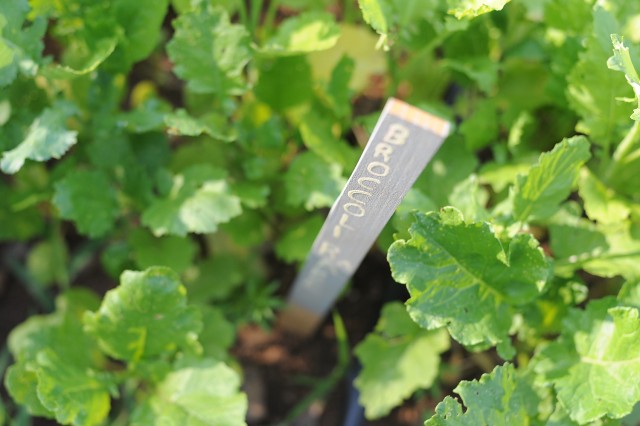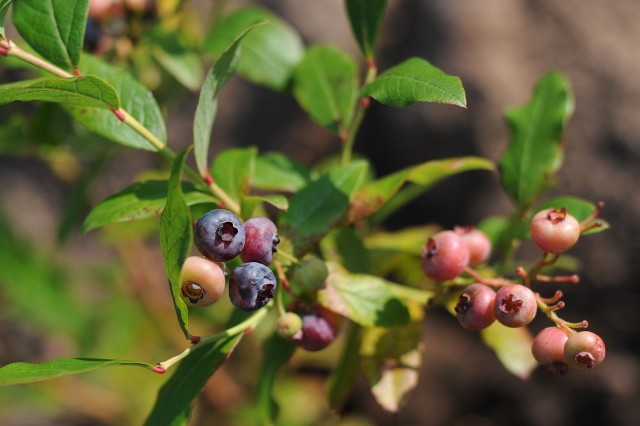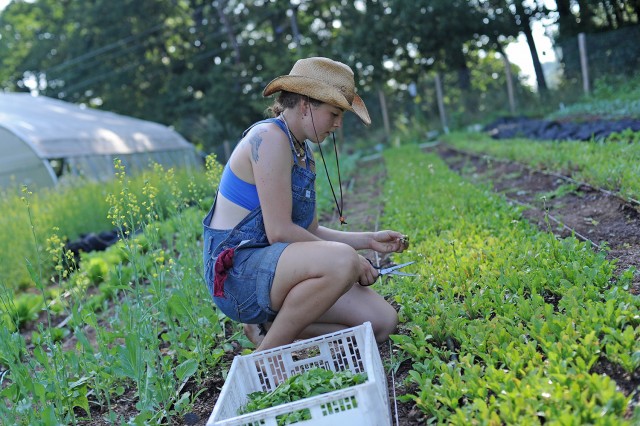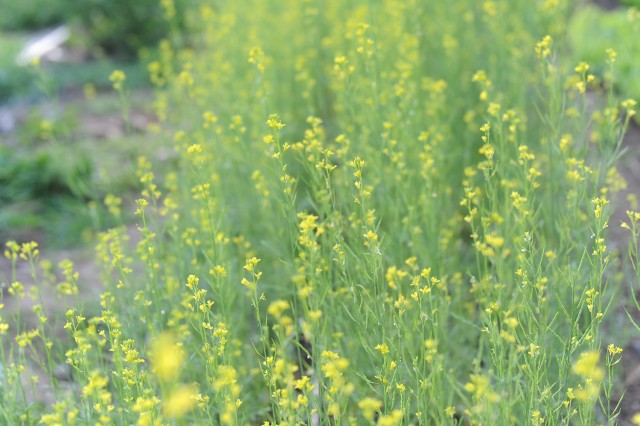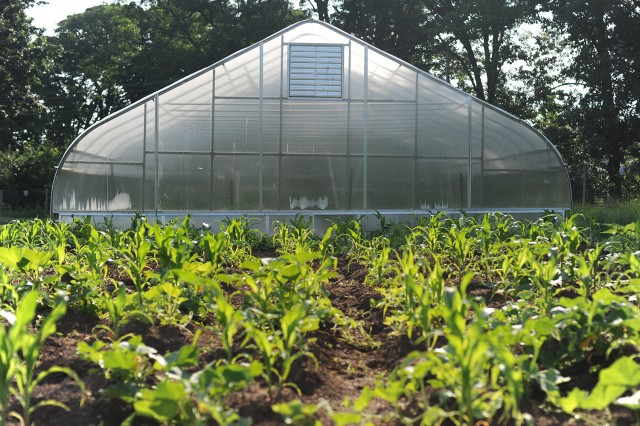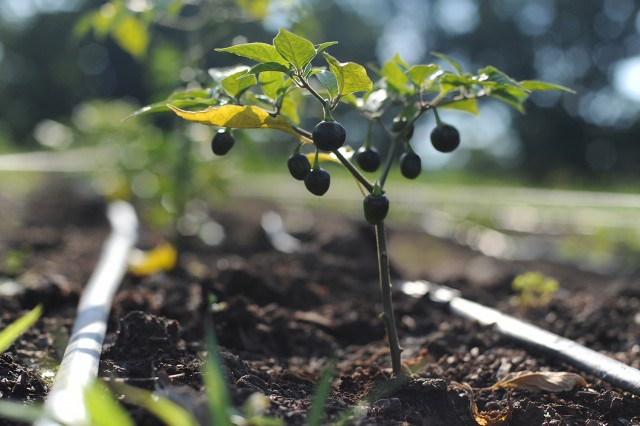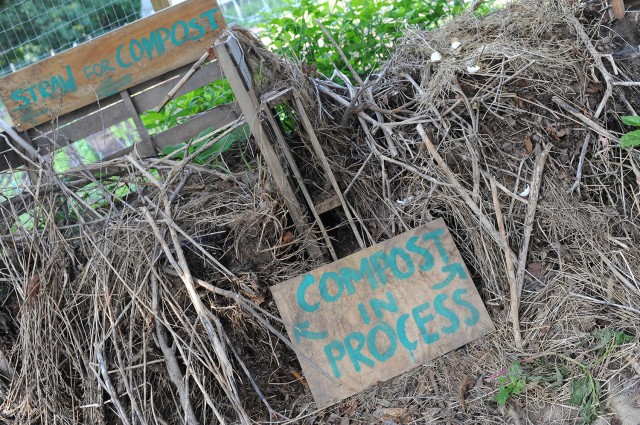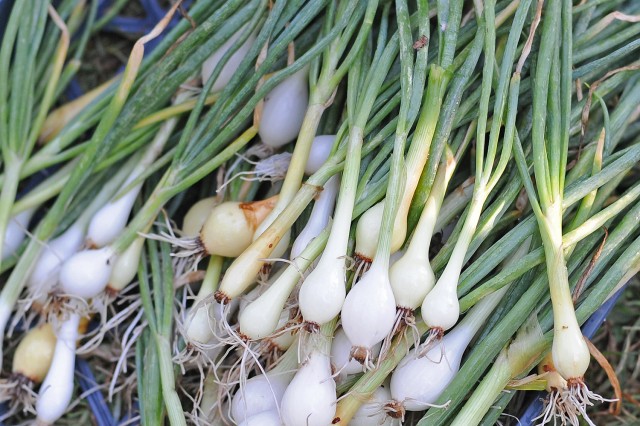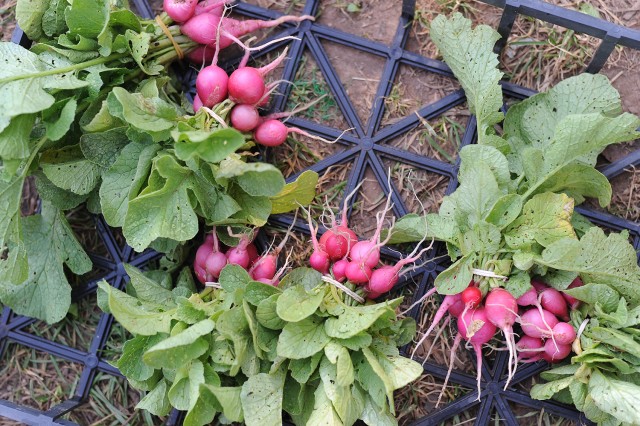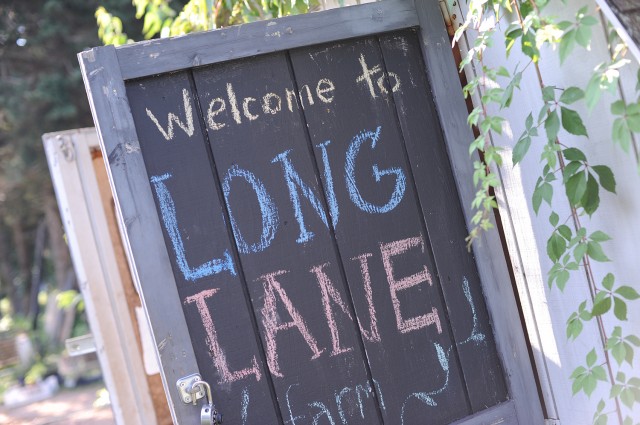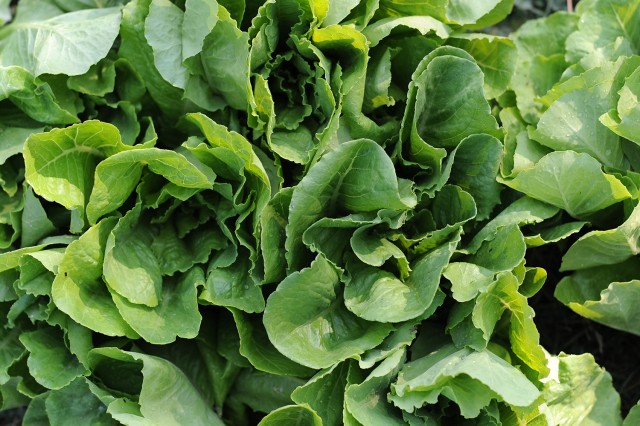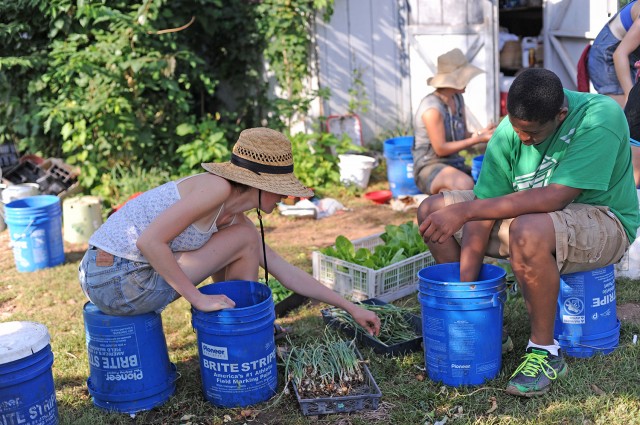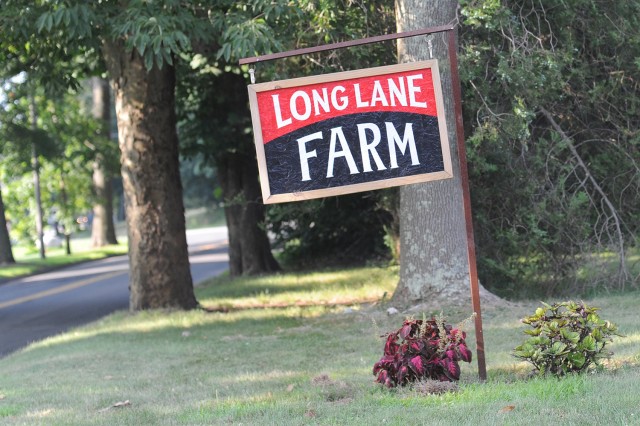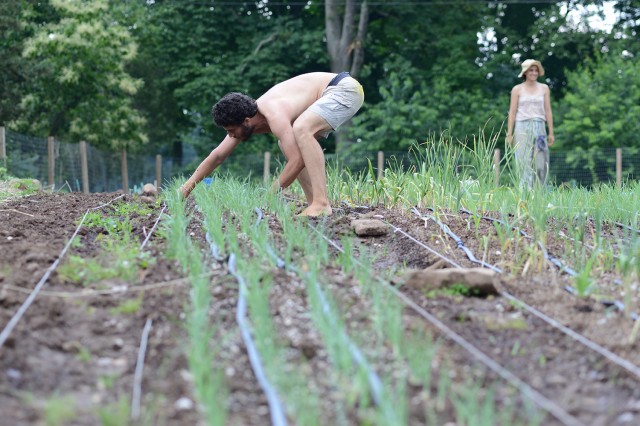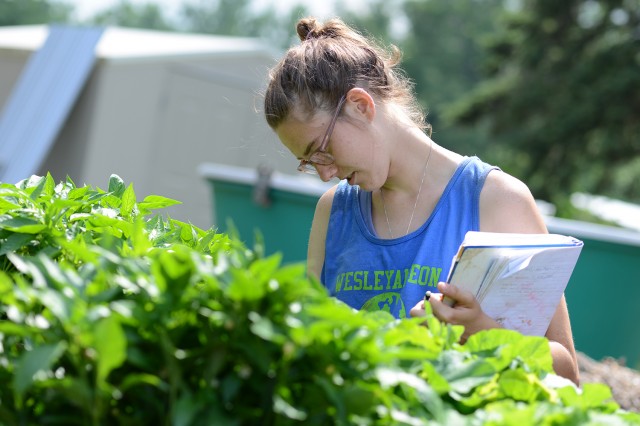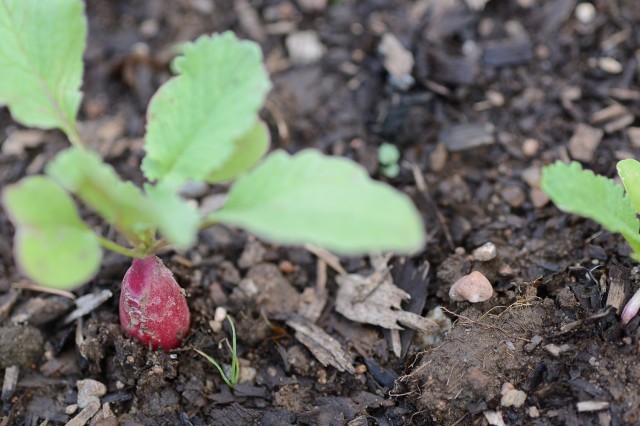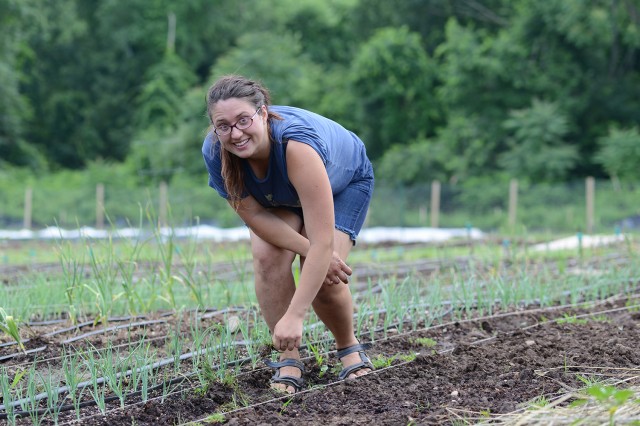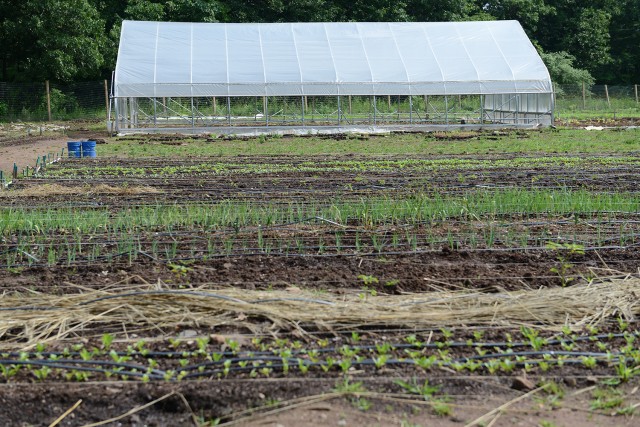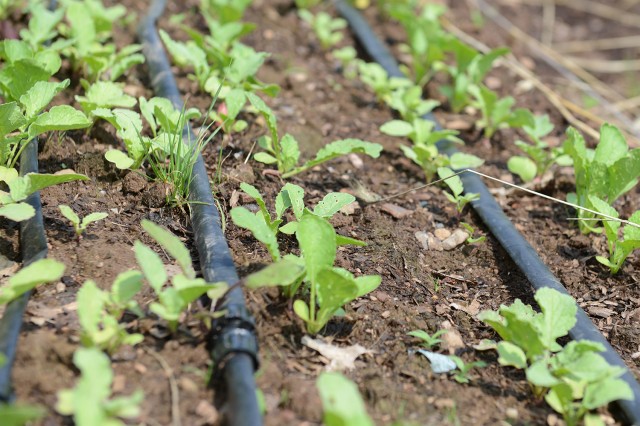10 Students Tend 2 Acres at Wesleyan’s Long Lane Farm
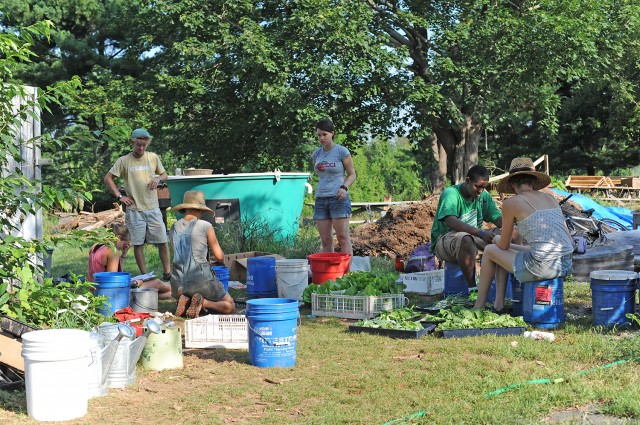
While their classmates spend the summer growing business contacts at off-campus internships, 10 Wesleyan students hope to cultivate something equally lucrative – sustainable agriculture.
The “dirt in the nails” days are long but satisfying at Wesleyan’s Long Lane Organic Farm, a student-run organic farm that gives students a place to experiment and learn about sustainable agriculture. Sustainable agriculture integrates three main goals – environmental health, economic profitability, and social and economic equity.
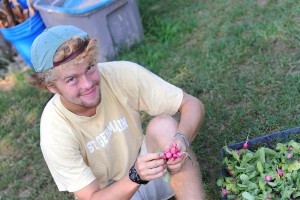
This summer, the students are cultivating two acres of land, the biggest plot they’ve ever farmed. They’re growing cucumbers, radishes, tomatoes, tomatillos, squash, asparagus, basil, broccoli, lettuce, blueberries and much more. They’re also building a second hoop house, similar to a greenhouse, which will allow the students to grow leafy greens, peppers and other crops during the fall and winter months.
Not all students have a farming background. Summer farmer Coady Johnson ’15 grew up an hour north of Chicago in Wadsworth, Ill. where “most of the surrounding area is cornfields, but even so I didn’t get involved in farming until coming to Wesleyan,” he said.
At Wesleyan, Johnson fell in with a group of people who inspired him to think about the state of food production and consumption in this country.
“Industrial farming and a disconnect between what we eat and how it is produced is hurting our well-being, and I think that the best way to remedy that is to educate myself and others on growing our own food in a more responsible and sustainable way.”
A day down on the farm begins at 7 a.m. with a morning meeting . There, the students discuss plans for work, “like whether or not we should companion plant radishes with the squash. We try to be horizontally organized and make decisions only with 100 percent consensus, so that everyone can have a say in what we’re doing, and can suggest new ideas if they want,” Johnson said.
The students work until 11 a.m. and take a midday heat break. During time, the farmers run errands and do other work for the farm that can be done in the field, like emails and budget spreadsheets. At 3 p.m., the students return to the fields and work until 7 p.m. The farmers also choose to participate in various building projects such as planning and building the mass irrigation system.
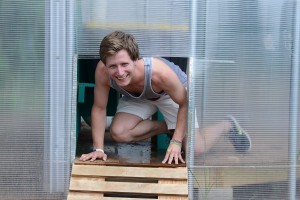
Food harvested from the farm is sold at the North End Farmers’ Market throughout the summer, and at the Wesleyan Farmers’ Market during the academic year. The student farmers donate excess food to Amazing Grace Food Pantry in Middletown, and have an arrangement through which Bon Appetít dining services funds positions for students to work on the farm in exchange for weekly deliveries of farm vegetables. In addition, the students invite local families to the farm and teach children about the various aspects of farming and producing food. Children are sent home with a bag of produce that they personally harvested.
Next fall, a flock of feathery friends will join the students at the farm. A newly-designed and installed chicken coop will enable the farmers to harvest local eggs for use at Usdan University Center. Learn more about the coop in this Wesleyan Connection article.
The summer farmers are Laura Cohen ’14, Kate Enright ’15, Coady Johnson ’15, Ben Guilmette ’15, Josh Krugman ’14, Maggie Masselli ’16, Anna Redgrave ’16, Rebecca Sokol ’15, Hailey Sowden ’15 and Cat Walsh ’16. And they’re always looking for extra working hands.
“Whoever wants to help is a farmer, and we’re always looking for new people, from Wesleyan or from Middletown at large,” Johnson said.
Learn more about the farm’s
Photos of the farm are below:
